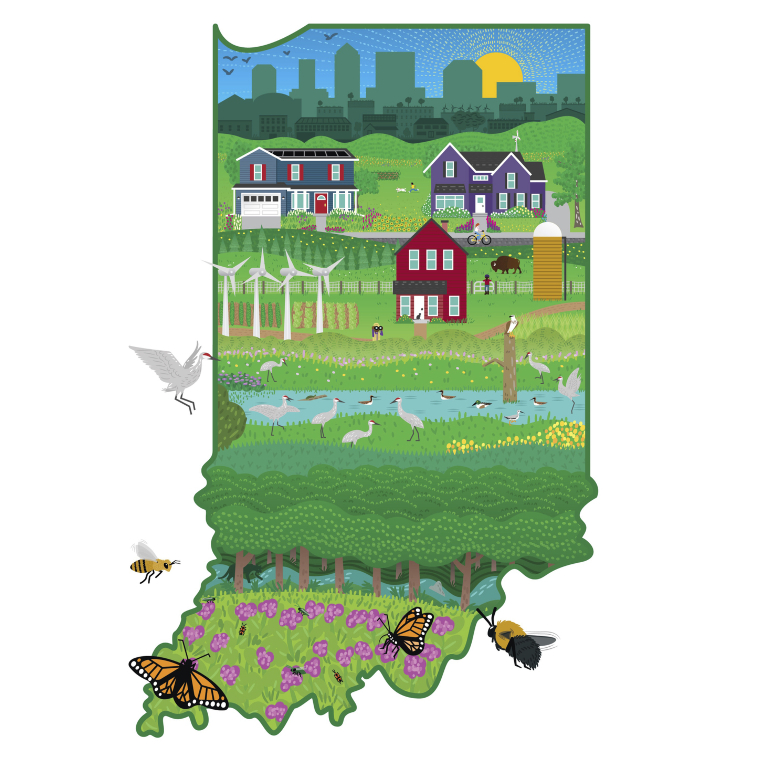On a pleasant spring morning in May, K-12 teachers gathered at Dunn Woods on Indiana University’s Bloomington campus to collect soil samples and study how soil acts as a store and source of carbon dioxide. IU scientists led the activity, part of a week-long professional development workshop to help teachers better teach climate and environmental science in the classroom.
“Learning about this for myself gives me a lot of background knowledge, and it gives me ideas on how I can help my students,” said Lisa Kroll, a fifth-grade teacher from Bloomington, Ind.
For the past eight years, teachers like Kroll have attended the Summer Science Institute, part of the Educating for Environmental Change (EfEC) collaboration between IU faculty, the IU Environmental Resilience Institute, the IU School of Education, and science educators. The workshop connects teachers to IU scientists and age-appropriate curriculum that they can adapt for their own classroom instruction.
This year’s Summer Science Institute featured lessons on how to measure soil respiration, how to teach students media literacy, how to build CO2 monitors in the classroom, and more. To date, around 570 teachers have participated in EfEC programming, reaching an estimated 47,000 students.
“We want to provide teachers with the resources necessary to teach climate change in their schools,” said Adam Scribner, Director of STEM Education Initiatives for the IU School of Education and one of the EfEC organizers. “We want to create professional learning communities amongst those teachers, and we really want to create connections between the teachers and the IU environmental scientists that are working in the topics of climate change.”
More than two-thirds of Hoosiers agree that schools should teach children about global warming, according to the Yale Program on Climate Change Communication. Finding the right mix of information and activities that fit neatly into existing Indiana education standards can be a challenge, however. Furthermore, teachers must frequently overcome misinformation surrounding the science of climate change.
“Coming to IU and having researchers give you accurate data, accurate information is something that gives us clout, something that our students can believe in—basing all of our decisions on scientific data, not on politics,” said Stephen Park, a high school environmental science and biology teacher from Huntington, Ind.
Watch the videos:



